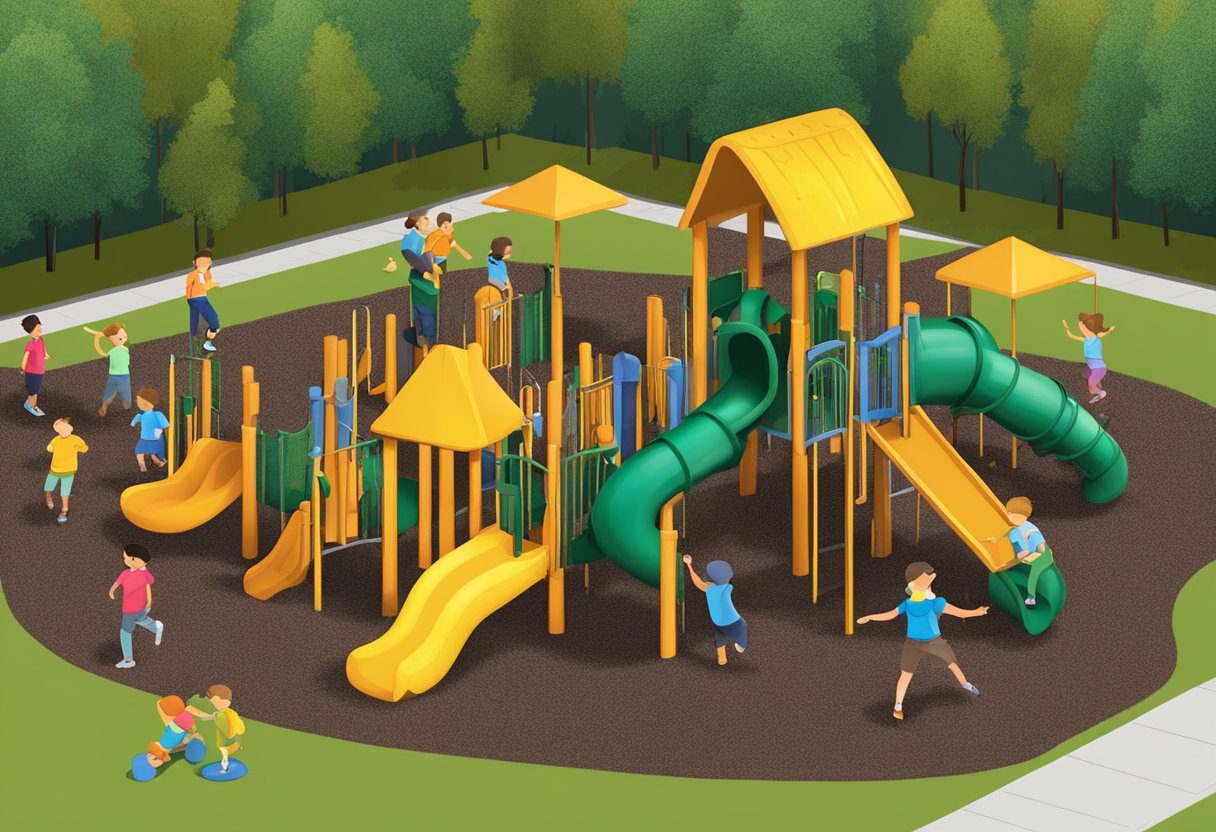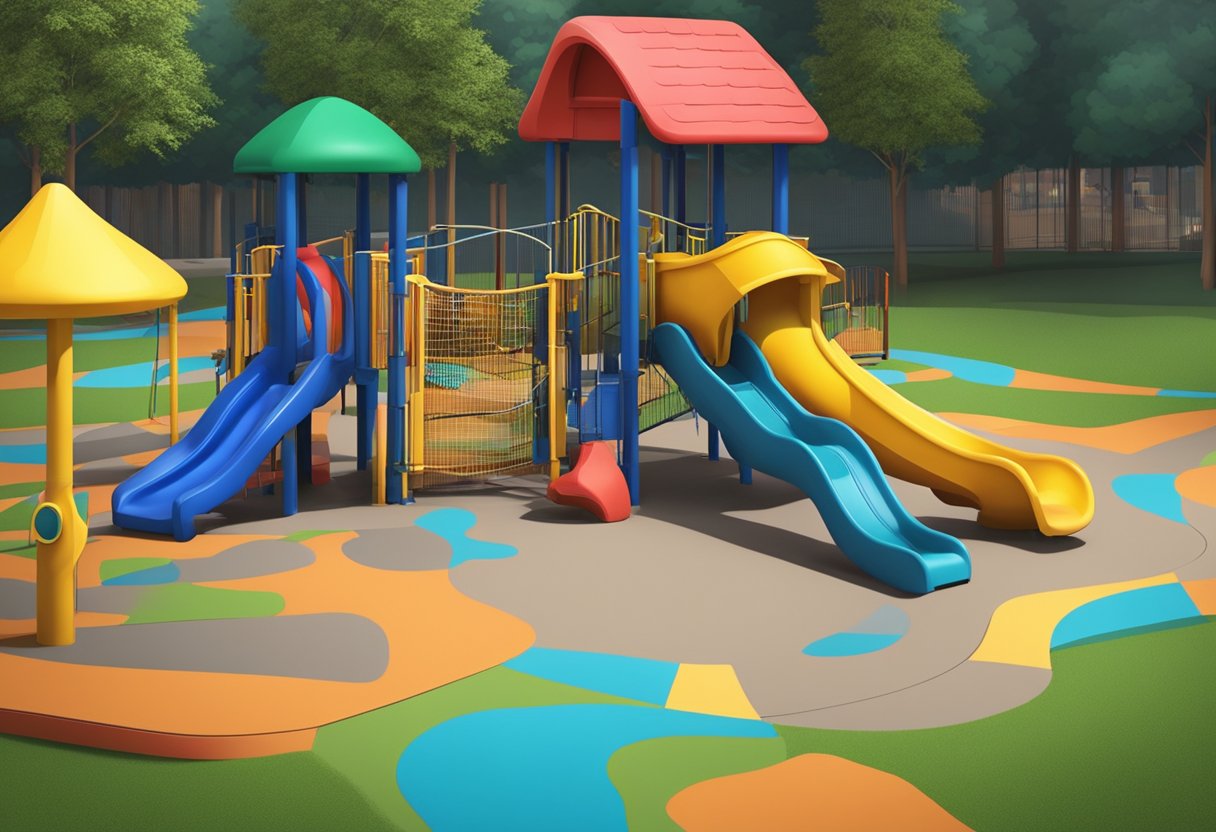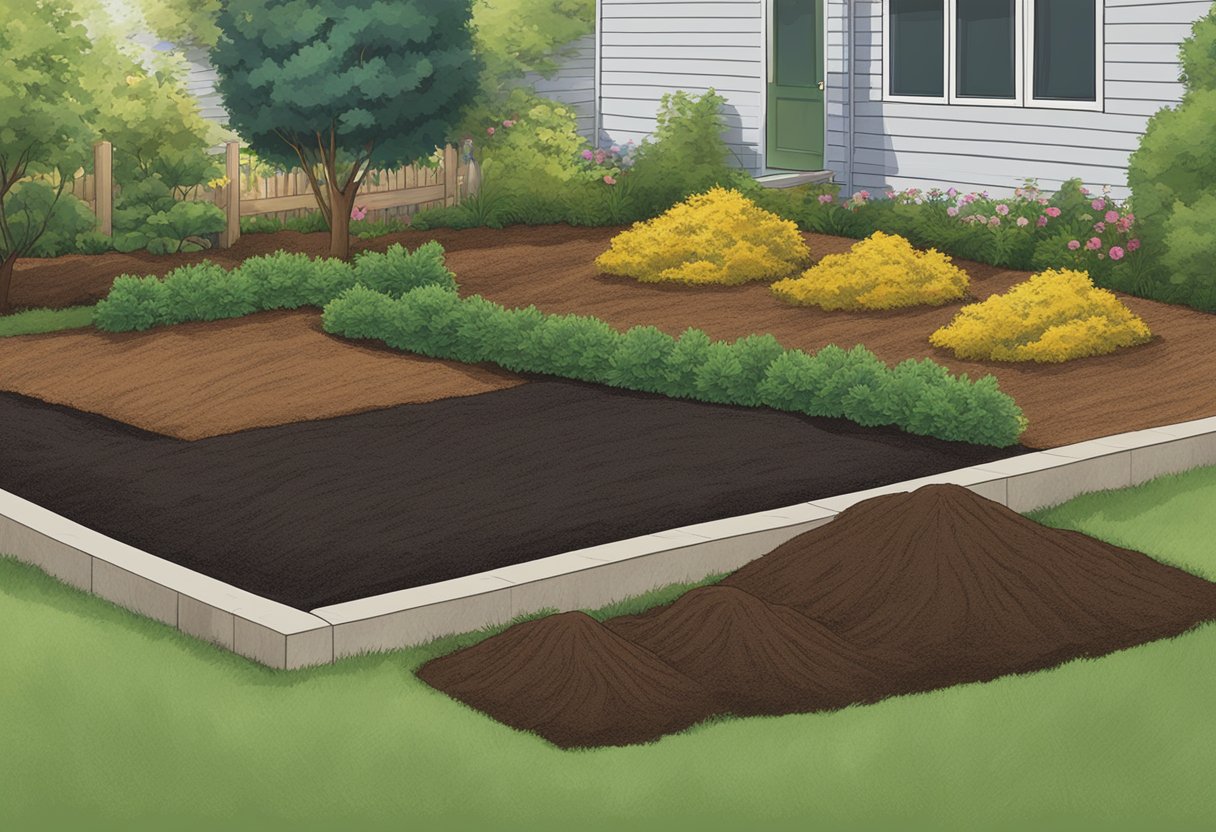In recent years, rubber mulch has become a popular choice for landscaping and playground surfaces, thanks to its durability and low maintenance characteristics. Unlike traditional wood mulch, rubber mulch is made from recycled tires, which means it doesn’t decompose and offers a long-lasting solution. We often see it used in areas where a shock-absorbent material is beneficial, such as children’s playgrounds, and its ability to retain color and resist insect infestation makes it appealing for creating vibrant, low-care landscapes.

However, the decision to use rubber mulch isn’t straightforward, as there are important considerations to weigh. We are aware of concerns regarding its impact on soil health, as rubber mulch does not break down to provide nutrients to the soil. Its synthetic nature also raises questions about potential soil and water contamination, and we take these environmental factors seriously. Moreover, while it’s touted for suppressing weed growth, the initial cost versus organic alternatives is significantly higher, which may influence our landscaping decisions.
As for safety, particularly on playgrounds, rubber mulch provides a cushioned surface that potentially reduces injury risk from falls. We’ve noted its performance under various weather conditions, where it doesn’t freeze in cold climates or blow away in windy scenarios. Despite these advantages, we remain cautious about the temperature it can reach in direct sunlight, especially with darker colors, and its flammability, prompting us to consider the specific context and requirements of each site before recommending its usage.
Benefits and Drawbacks of Rubber Mulch

When considering rubber mulch for our landscaping or play areas, it’s essential to weigh its durability and safety against its environmental impact and potential toxicity.
Pros
- Durability and Longevity: Our use of rubber mulch appeals to us because of its significant lifespan. It can last up to 10 years, far outstripping organic alternatives such as wood, which decompose within 4 to 7 years.
- Low Maintenance: It doesn’t attract pests and is not prone to mold. It also stays in place, reducing the need for frequent topping-up.
- Weed Suppression: It does an excellent job of suppressing weed growth, limiting our need for weed control.
- Safe Play Areas: In play areas, rubber mulch provides a soft surface, which can cushion falls and reduce injuries.
- Water Conservation: Rubber mulch doesn’t absorb water, allowing more moisture to reach the soil and plant roots.
Cons
- Soil Nutrition: Unlike organic mulches, it does not contribute nutrients to the soil as it doesn’t decompose.
- Environmental Concerns: It may release chemicals and heavy metals into the soil and surrounding environment, although our research into these effects is ongoing.
- Difficult Removal: Once in place, rubber mulch can be challenging to remove and replace with another material.
- Flammability: Rubber is more flammable than organic mulches; if it ignites, it’s harder to extinguish and can emit toxic fumes.
- Cost: Initially, it is more expensive than its organic counterparts, though its longevity may offset the initial cost over time.
Comparative Analysis of Mulch Types

In this section, we evaluate the differences between rubber mulch and organic alternatives, assess their environmental impact, and address safety concerns to inform consumer choices.
Rubber Mulch vs Organic Mulches
When comparing rubber mulch to organic mulches such as wood chips, straw, or compost, several key points stand out.
Rubber Mulch:
- Durability: Lasts longer than organic options, reducing the frequency of replacement
- Maintenance: Requires less upkeep as it doesn’t decompose
- Appearance: Retains color and doesn’t fade as quickly as wood mulch
- Moisture Retention: Effective at retaining soil moisture, similar to organic mulches
- Weed Growth: Generally suppresses weeds more effectively due to its density and coverage
Organic Mulches (Wood Chips, Straw, Compost):
- Nutrient Supply: As they decompose, they add nutrients and organic matter to the soil
- Sustainability: Sourced from renewable resources and are biodegradable
- Environmental Impact: Lower risk of soil contamination from heavy metals compared to rubber mulch
- Safety Concerns: Less likely to contain harmful chemicals or heavy metals
- Cost: Typically less expensive than rubber mulch
Environmental Impact and Safety Concerns
The environmental and safety implications of mulch choices are crucial for both the ecosystem and human health.
Rubber Mulch:
- Contamination Risk: May leech zinc, lead, and other heavy metals into the soil, potentially impacting groundwater
- VOCs: Can emit volatile organic compounds (VOCs) as it heats up, raising health and safety concerns
- Flammability: Less flammable than organic mulches but can release toxic chemicals if burned
Organic Mulches:
- Decomposition: Enhance soil quality without the risk of leaching toxins
- Weed Seeds: Some organic options can contain weed seeds, leading to additional weed control measures
- Sustainable: More sustainable as they can be produced from garden waste and other natural by-products
Our analysis suggests that while rubber mulch offers low maintenance and durability, the environmental concerns, potential contamination, and health risks must be weighed against the benefits. Organic mulches provide soil enhancement, sustainability, and generally safer options, albeit with increased maintenance requirements.